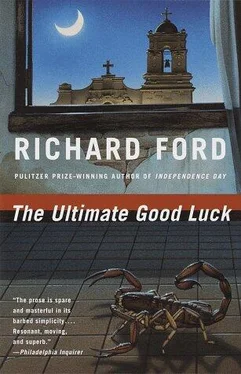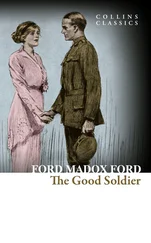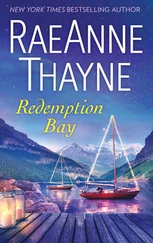Richard Ford - The Ultimate Good Luck
Здесь есть возможность читать онлайн «Richard Ford - The Ultimate Good Luck» весь текст электронной книги совершенно бесплатно (целиком полную версию без сокращений). В некоторых случаях можно слушать аудио, скачать через торрент в формате fb2 и присутствует краткое содержание. Год выпуска: 2010, Издательство: Vintage, Жанр: Современная проза, на английском языке. Описание произведения, (предисловие) а так же отзывы посетителей доступны на портале библиотеки ЛибКат.
- Название:The Ultimate Good Luck
- Автор:
- Издательство:Vintage
- Жанр:
- Год:2010
- ISBN:нет данных
- Рейтинг книги:5 / 5. Голосов: 1
-
Избранное:Добавить в избранное
- Отзывы:
-
Ваша оценка:
- 100
- 1
- 2
- 3
- 4
- 5
The Ultimate Good Luck: краткое содержание, описание и аннотация
Предлагаем к чтению аннотацию, описание, краткое содержание или предисловие (зависит от того, что написал сам автор книги «The Ultimate Good Luck»). Если вы не нашли необходимую информацию о книге — напишите в комментариях, мы постараемся отыскать её.
"His prose has a taut, cinematic quality that bathes his story with the same hot, mercilessly white light that scorches Mexico."-
The Ultimate Good Luck — читать онлайн бесплатно полную книгу (весь текст) целиком
Ниже представлен текст книги, разбитый по страницам. Система сохранения места последней прочитанной страницы, позволяет с удобством читать онлайн бесплатно книгу «The Ultimate Good Luck», без необходимости каждый раз заново искать на чём Вы остановились. Поставьте закладку, и сможете в любой момент перейти на страницу, на которой закончили чтение.
Интервал:
Закладка:
“What’s that?” Quinn said.
“Narco,” he whispered, musing in the shadows.
“I wouldn’t know about it,” Quinn said. He didn’t like the implication and he didn’t like the deputy too much. Bernhardt was already at the door.
The deputy leaned backward in his big chair and opened his arms widely as if his appeal went out to a higher authority. “I know about it very much,” he said and sighed, his chest heaving beneath his silk blouse. “It is a grave offense.”
“I’ll take your word,” Quinn said.
“But I envy that,” the deputy said loudly, letting his arms fall onto the sides of his chair. “You are lucky to know nothing. Maybe you will do well.” He kept the smile frozen on his tiny clerk’s face.
“I’m betting on it,” Quinn said and followed Bernhardt out.

In the courtyard a farmer in a straw hat stood beside a goat, sheltering below the arches of the palacio. A current of urine had drained from between the goat’s legs out into the court and become diluted in the pool of speckled water where the center drain of the court was clogged. The farmer was looking straight into the sky as if he could see the end of the rain high up and was waiting for the moment when that end would arrive where he was standing.
“Deats showed up,” Quinn said when they had stepped out to the cooler air of the mezzanine. It seemed believable to him now. Something about the deputy made it completely believable.
Bernhardt’s mouth was nervous. “Where?” he said. He reached in his coat pocket for the envelope.
“At the bungalow.” He watched Bernhardt closely for some sign of going down the road. “Something’s got to happen right now,” he said.
Bernhardt looked at him. “Do you want just to let it go? We can just let it go.”
“That’s not one of the options,” Quinn said. “Think of something else.”
Bernhardt stepped beside the granite balustrade that overlooked the court where the farmer waited, staring toward the sky. He put his fingers on the edge of the stone. “Does it matter to you if your brother-in-law did as Mr. Deats says he did, or that he didn’t?” Bernhardt said. “A moral dimension.”
“I’m not thinking about that right now. I’ll think about it later.” He didn’t like things that way, but they were that way. The moral dimension wasn’t an issue.
“These are necessary questions,” Bernhardt said.
“So what do you know about him?” Quinn said.
Bernhardt watched the farmer with the goat. “I know a man Mr. Deats has business with,” he said softly.
“And?”
Bernhardt seemed to want to be very precise. “To deal with Mr. Deats in any way may damage their business, and then we are in their business. And that becomes risky. Do you understand?”
“No,” Quinn said. “I just want to get Sonny out of the joint and the fuck out of here. Why is that risky?”
“I have to see the other people involved. I must impress Mr. Deats.” Bernhardt was keeping his eyes on the courtyard while he talked. “That’s the risk. It might be better to disengage.”
“Are you talking more money?” Quinn said.
“No,” Bernhardt said and suddenly looked at him significantly, though he couldn’t be sure what the significance attached to.
“What happens to Deats?” he said.
“I will talk to him,” Bernhardt said. He took off his glasses and held them up to the grey rain light that bathed the inside of the court.
“Is it easy?” Quinn said.
“No. It is not easy,” Bernhardt said, blinking in the cool air.
“Is it dangerous?”
“Maybe it is,” Bernhardt said.
“I don’t want my wife in this.” He tried to get Bernhardt’s eye. “Do you understand that?”
“It is not necessary,” he said. “She can go back. We do not need her.”
“We need the money, though, right?”
“Of course.”
“All right,” Quinn said. “I just don’t want her in any heavy-duty shit.”
Bernhardt fitted his glasses carefully back over his ears and looked at Quinn calmly. “I will want you to come with me tonight,” he said, “for business. I will explain to you.” He began to walk toward the stone steps.
Quinn looked in the court for the farmer with the goat. They had moved back under the arches. Bernhardt appeared suddenly in the court below. He stopped and looked up and took his glasses off again in the shelter of the lower arcade. Quinn felt something changing imperceptibly, something that didn’t make any difference. It was simply the less important thing you gave up, the slightest measure of control, he knew, that meant you wanted something very bad.
9
ON THE AIRPORT ROAD the rain was already past, dissipating into the mountains above the bungalow, the airport obscured out in dampness like a city eclipsed in a dream. The rented Dodge had a radio and Quinn let himself ease into the jabber of furniture sales and flights to Europe, good living south of the border. There had been police in the streets when he had left the palacio, too many for one afternoon. It had made the city feel tense, as if the rain had left a film of dread behind it. Ugliness went on at all hours, but you saw it by accident or not at all. Something had made waves in the public sector, and Bernhardt had mentioned the shooting the night before. Everything was ripples on ripples.
He had stopped at a tourist jeweler on the way and bought a silver lavaliere with a green inlay of a man dancing. The saleswoman was English and claimed the piece was jade and antigüedad and protective, but the inlay had been machined. It was one lie or another, and for that instant all that mattered was whether the woman had been convincing.

What had pushed it out of shape in L.A. had been the work. He had thought if he could manage a union card somewhere between San Diego and Santa Barbara and get on any place at scale, he could last a year, and something would get obvious in a year. They rented a house in the redneck suburbs back of Seal Beach a block from the navy station, and he had gone on weekends re-poing cars while he made the oil company offices all week and got his name on the master lists at Rockwell and McDonnell’s and little feeder plants in Ventura.
Rae read magazines for a month, then went to work out of boredom ushering in a Jerry Lewis cinema. She started waitressing in a Redondo bar, then quit and spent a month answering the phone at a crisis center in Point Fermin until the crises started coming home, making her lose sleep. At the end she quit and stayed home watching quiz shows and reading National Geographic s stoned, until she decided the moral climate in California was oppressing. She told him she didn’t like the weather being the same and the air changing colors, and that when she was with Frank Oliver they had gone north of Seattle two winters and stayed, and he worked the local rodeos, hung out, and moved cars into B.C., and she applied at the Swinomish reservation and taught prenatal care to give herself a life, and that she had liked that a lot better than L.A. She said she had read in the L.A. Times that people with factory skills were getting hired in Washington and the unions were opening up and she had an idea about Alaska. She said they could both work on the pipe and live in a house free and save twenty thousand dollars in six months and do whatever appealed to Quinn after that. She said she wanted to do whatever he wanted to do and stay together, and if he wanted to leave that was all right.
L.A. had begun to feel flatted out and unlocatable. He started hitting the fights on Thursdays when Rae was ushering, and going to the little social club arenas in the East End where the pure Mexicans fought, and sometimes to the Lakers with Rae when Sonny could get tickets. The fights had a discipline to them and a palpable life behind them, a coherence that was correct and apparent. Though he seemed to spend all day waiting for the night, and that seemed backward from how he wanted it. He didn’t like re-po except it was the only weekend work, round the clock, where he could make enough to get by while he cruised Highway 1 with the phone book open, looking for job plants with a sign up for fitters, and waited up for calls. He began to spend every Friday afternoon on the bus to Lancaster or Mojave or Victorville, and every Friday night shadowing trailer courts and phone booths down the road from little four-room desert cracker boxes, wearing black jeans and a turtleneck, waiting for a sailor or a marine from Seal Beach to show up in his Firebird or his Formula Two and disappear inside. It was the wrong thing, but that was all there was he could stand. He could solve the routine and he needed the money. When the door closed, he would wait ten minutes watching, then walk to the car, check the back for kids or dogs, match the number off the windshield strip, slim-jimmy the door, cut the ignition, plug in the universal, and drive the car back across the desert to a big floodlit fenced compound in Downey where he could catch a ride to the Greyhound station on Main Street then start for another car.
Читать дальшеИнтервал:
Закладка:
Похожие книги на «The Ultimate Good Luck»
Представляем Вашему вниманию похожие книги на «The Ultimate Good Luck» списком для выбора. Мы отобрали схожую по названию и смыслу литературу в надежде предоставить читателям больше вариантов отыскать новые, интересные, ещё непрочитанные произведения.
Обсуждение, отзывы о книге «The Ultimate Good Luck» и просто собственные мнения читателей. Оставьте ваши комментарии, напишите, что Вы думаете о произведении, его смысле или главных героях. Укажите что конкретно понравилось, а что нет, и почему Вы так считаете.







![Theresa Cheung - The Dream Dictionary from A to Z [Revised edition] - The Ultimate A–Z to Interpret the Secrets of Your Dreams](/books/692092/theresa-cheung-the-dream-dictionary-from-a-to-z-r-thumb.webp)




